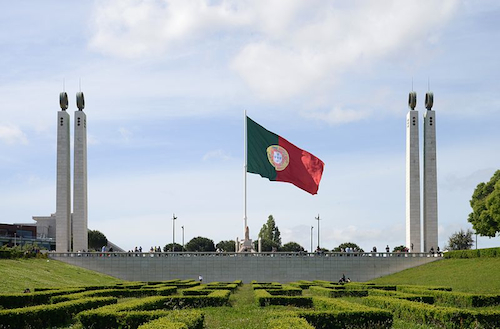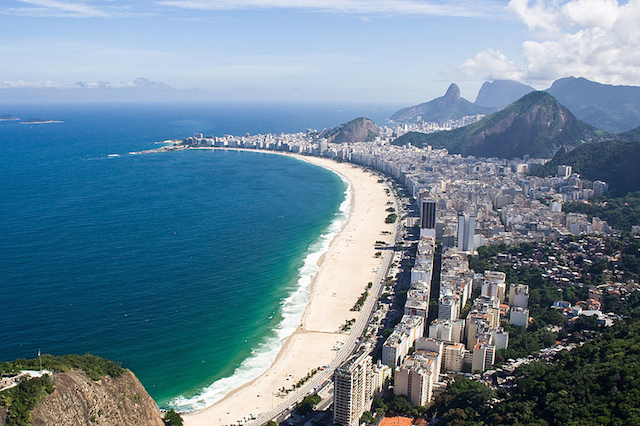9 Surprising Facts About the Portuguese Language
Portuguese is an ancient language with a rich history. A Romance language, it developed in Portugal after Latin was brought there by Roman settlers in the third century BCE. Despite the fact that it originated in Portugal, however, only a small fraction of present-day Portuguese speakers live in the country where it all started. Did you know that there are more Portuguese speakers in Brazil than in all other countries where Portuguese is spoken -- combined? Or that hundreds of Portuguese words derive from Arabic? Here are some of the most interesting oddities of Portuguese, the seventh-most spoken language in the world.
 Image via Alvesgaspar / Wikipedia
Image via Alvesgaspar / Wikipedia
1. Portuguese was officially declared a language in 1290.
Portuguese gradually evolved from Latin after it was introduced into Portugal around 200 BCE. It wasn’t until 1290, however, when King Denis of Portugal declared it the language of Portugal, that it was recognized as an official language.
2. Three new letters were added to its alphabet in 2009.
Before 2009, the letters k, y, and w did not exist in Portuguese writing. Due to the recent influx of English loanwords, however, these three letters were officially added to the Portuguese alphabet in January of 2009.
3. There are over 5 million native Portuguese speakers in Africa.
Portuguese isn’t just spoken in Portugal and Brazil: it’s also used natively by 1.3 million people in Mozambique, and by almost 4 million people in Angola (that’s 20% of the population).
4. Each verb tense in Portuguese comes with six different endings.
Bad news for Portuguese learners: the conjugations can seem limitless. Like other Romance languages such as Spanish, Portuguese verbs are conjugated for person and number, meaning that each verb tense has six different unique forms.
5. Portuguese is mutually intelligible with Galician.
Galician, which is spoken by around 3 million people in the Northwest corner of Spain, is so similar to Portuguese that speakers of either language can generally understand each other with minimal effort.
How good is your Portuguese? Find out by taking our free online Portuguese level test!
6. Brazilian Portuguese is different from other varieties.
Brazil declared its independence from Portuguese in 1822, and thus has existed as a sovereign state for nearly 200 years. As such, its language has evolved to be quite different from that of Portugal. Given that other Portuguese colonies became independent more recently, the Portuguese that is spoken in these colonies tends to be closer to the European variety than the Brazilian one.
7. Brazil and Portugal had different spelling conventions until 1990.
Due to their geographical distance, Brazilian and European Portuguese developed separate writing systems after Brazil declared its independence from Portugal. To better organize and unify the language, both countries signed the Orthographic Agreement of 1990, which established a single orthography for both countries.
 Image via bisonlux / flickr
Image via bisonlux / flickr
8. Portuguese is strongly influenced by Arabic.
Spain was under Moorish rule from 700 to 1500 CE, and this profoundly affected Portuguese, as well. As a result, hundreds of Portuguese words come from Arabic. Many of these Arabic-derived words start with “al”, such as almofada (pillow).
9. Only 5% of Portuguese speakers live in Portugal.
There are over 200 million native Portuguese speakers, but only about 10 million of them -- less than 1 in 20 -- live in Portugal, the country that the language got its name from. The vast majority live in Brazil.
Even if you already knew that Portuguese is spoken in both Europe and South America, we bet you didn’t know that it’s spoken in Africa, too!
Whether you’re looking to learn Brazilian or European Portuguese, the best way to grasp its complex grammar (and countless verb conjugations) is to take lessons taught by qualified native Portuguese speakers. If you want to take your Portuguese skills to the next level, send us a quick inquiry to find out how we can best help you meet your goals.


